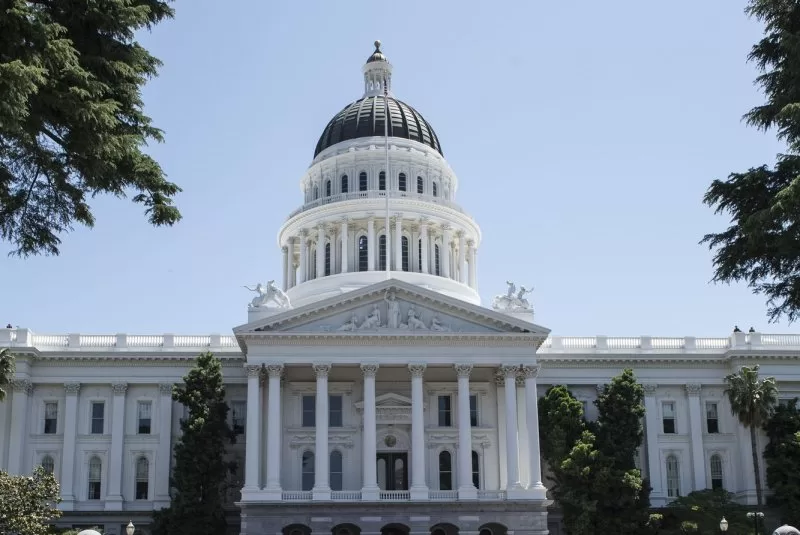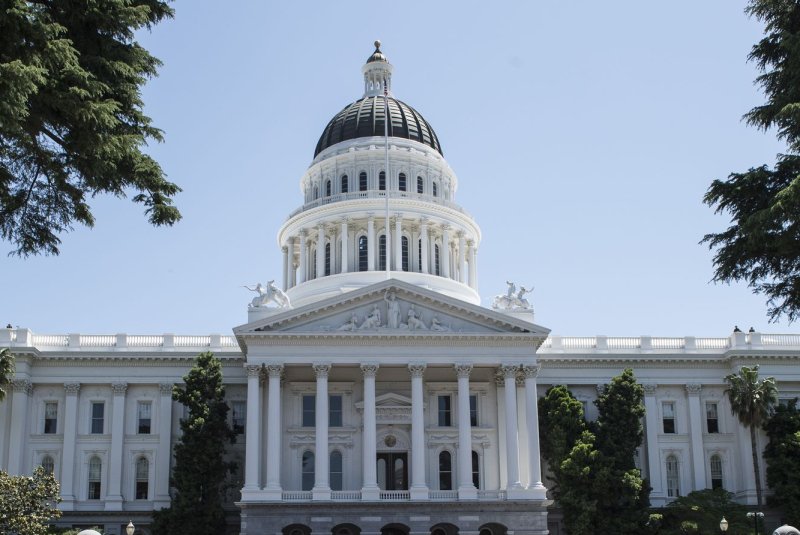1 of 2 | California state lawmakers in Sacremento (pictured) introduced bipartisan legislation Tuesday that would legalize the use of psychedelics for therapeutic purposes. The Regulated Psychedelic-Assisted Therapy Act, or Senate Bill 1012, would authorize licensed therapists to administer “magic” mushrooms to patients over 21. File Photo by Terry Schmitt/UPI |
License PhotoFeb. 6 (UPI) — California state lawmakers introduced bipartisan legislation Tuesday that, if passed, would legalize the use of psychedelics, or “magic” mushrooms, for adult therapeutic purposes.
The Regulated Psychedelic-Assisted Therapy Act, or Senate Bill 1012, would authorize licensed therapists to administer psychedelic mushrooms to patients over the age of 21.
Regulated psychedelic-assisted therapy would be “grounded in treatment, recovery, health and wellness, rather than criminalization, stigma, suffering and punishment,” the legislation states.
“California faces a profound mental health crisis, with 1 in 3 people struggling with mental health challenges,” state Sen. Scott Wiener, D-San Francisco, who reintroduced the legislation Tuesday, wrote in a post on X.
“While traditional treatment works for many, it doesn’t work for everyone and access is still limited. Too many people suffer in silence,” he said. “For some, psychedelic therapy can help.”
This is the second time Wiener has introduced legislation that would make California the third state, behind Oregon and Colorado, to legalize psychedelics in an effort to address mental health issues.
In October, Gov. Gavin Newsom vetoed a similar bill and urged state lawmakers to create “regulated treatment guidelines” before decriminalizing psychedelics. Wiener made the necessary changes and reintroduced the bill Tuesday, saying if it passes this year, treatments would be available in 2026 or 2027.
“SB 1012 creates regulated therapeutic access to psychedelic treatment,” Wiener said. “You’ll be able to visit a psychedelic treatment center and after making a plan and taking precautions, undergo treatment with a licensed facilitator with follow-up care.”
The psychedelic substances that would be legalized under supervised therapeutic access include psilocybin and psilocin, which are also known as “magic mushrooms;” DMT, the active ingredient in ayahuasca; as well as MDMA and mescaline, other than peyote.
While researchers and veterans groups say the use of psilocybin can help those who suffer from PTSD, Stanford researcher Anna Lembke questioned the legalization of psychedelic therapy for nonmedical professionals.
“There’s a good reason that medical professionals who prescribe and administer medications have to go through years of medical training, residency, board certification, etc., to have that privilege,” Lembke told the Los Angeles Times.
Despite evidence of mental health benefits, psilocybin can also cause intense fear, anxiety and confusion, as well as increased blood pressure and heart rate, vomiting or nausea,
“While psilocybin is by no means the most dangerous drug, recreational use can come with unforeseen risks such as bad trips,” said Joseph Palamar, an associate professor of epidemiology at NYU Grossman School of Medicine.
In the past five years, police seizures of “magic” mushrooms have more than tripled, according to a new report. The U.S. National Institute on Drug Abuse reported Tuesday that the total weight of psilocybin mushrooms seized by law enforcement in the United States grew from 498 pounds in 2017 to 1,861 pounds in 2022.

